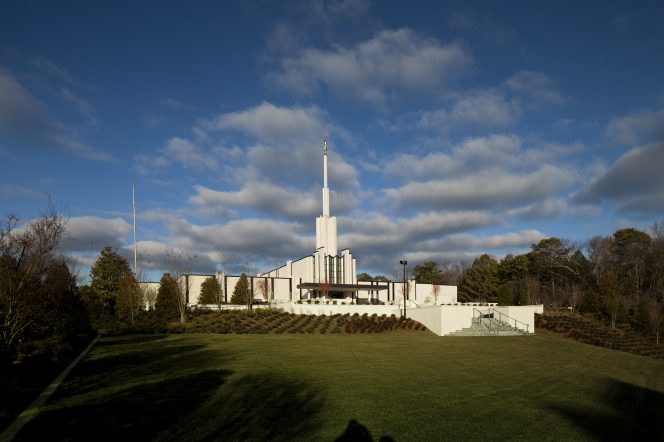
The Church of Jesus Christ of Latter-day Saints has announced plans to create a new hymnal, which I find quite exciting. The subject came up once or twice during our Peru trip.
Here’s a column that Bill Hamblin and I published in the Deseret News on 5 April 2014. It’s about a hymn that I would really like to see included in the new hymnbook:
John Newton was born in London in 1725. His early life scarcely suggested that he would someday compose one of the most popular hymns ever written.
Yet “Amazing Grace” has been sung or recorded by artists as diverse as Pete Seeger, Judy Collins, Elvis Presley, the Royal Scots Dragoon Guards, Aretha Franklin, Tiny Tim, Rod Stewart, Woody Guthrie and “Doc” Watson. It’s been rendered in blues form; performed by jazz musicians; featured at the funerals of Richard Nixon, Joe DiMaggio and John F. Kennedy Jr.; and in the soundtrack of “Star Trek II.”
But “Amazing Grace” is no mere pop cultural icon. It’s a testament to the transformative power of religious conversion.
The motherless son of a merchant ship captain who plied the Mediterranean, Newton went to sea with his father at the age of 11. In 1744, he was pressed into service on a British navy man-of-war, the H.M.S. Harwich. When shipboard conditions proved intolerable, he tried to desert. But he was soon recaptured, publicly flogged and demoted from midshipman to common seaman.
Finally, at his own request, he was transferred to a slave ship bound for the coast of Sierra Leone. He became the personal servant of a slave trader but had to be rescued from the man’s brutality by a sea captain friend of his father.
Newton ultimately rose to command his own slave ship. He had long since abandoned the religious convictions of his mother; life on slave ships hardly fostered spirituality. However, while returning from Africa in 1748, he encountered an especially violent and terrifying storm and was convinced that both he and his ship were doomed. Suddenly, he heard himself exclaim, “Lord, have mercy upon us..”
Thus occurred what he later called his “great deliverance.” It wasn’t merely that he, his crew and his ship unexpectedly survived the storm, but also that he had been miraculously turned to God. Reflecting on his spontaneously exclaimed prayer, he became convinced that God had used the storm to save him — a blessing far beyond his merits.
“‘Twas grace that taught my heart to fear, And grace my fears relieved; How precious did that grace appear, The hour I first believed!
“Through many dangers, toils, and snares I have already come; ‘Tis grace has brought me safe thus far, And grace will lead me home.”
For the remainder of his life, Newton observed May 10, the date of that horrific storm, as the anniversary of his conversion.
Newton continued in the slave trade for a while but now tried to treat the prisoners on his ship humanely. By 1755, however, following a serious illness, he gave up both slaving and seafaring altogether. He had begun to educate himself, ultimately learning Latin, Greek and Hebrew.
While working as surveyor of tides at Liverpool, he became acquainted with the preacher George Whitefield and with Methodist founder John Wesley, and he decided to become a minister. After overcoming serious obstacles, he was assigned to a church in Olney, north of London, where his sermons were soon so popular that the building had to be expanded.
In 1767, the poet William Cowper settled at Olney, and he and Newton became close friends. Together, beyond regular church services, they led weekly prayer meetings and wrote a new hymn for each. (Among these hymns are several that are still popular among Protestants, including “Glorious Things of Thee Are Spoken.”)
“Amazing Grace” was written in Olney late in December 1772. The hymn plainly drew upon Newton’s storm-tossed conversion experience and his previous life as an unbeliever, a slave trader and a libertine.
“Amazing grace! (how sweet the sound) That saved a wretch like me! I once was lost, but now am found, Was blind, but now I see.”
In 1780, Newton left Olney for a church in London where, once again, his sermons drew large congregations. Things came full circle: Among those who regularly attended and were profoundly affected by Newton’s preaching was the future parliamentary leader William Wilberforce, who ultimately spearheaded the successful campaign to abolish slavery throughout the British dominions.
Although he eventually lost his eyesight, Newton continued to preach until shortly before his death on Dec. 21, 1807, confident that the sins and turmoil of his earlier life had been forgiven through the atoning sacrifice of Jesus Christ.
“Yes, when this flesh and heart shall fail, And mortal life shall cease; I shall possess, within the veil, A life of joy and peace.”
Posted from Atlanta, Georgia











